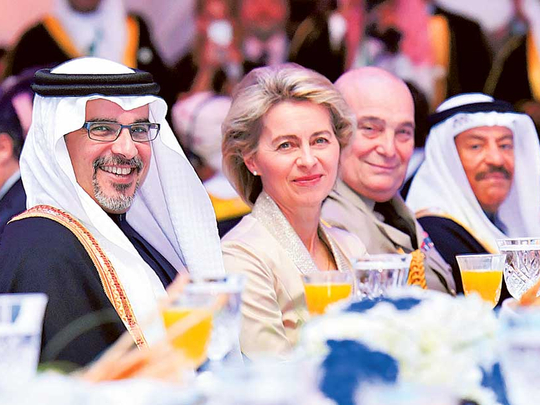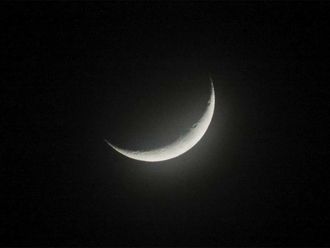
Manama: US Defence Secretary Ashton Carter said that despite the eventual defeat of Daesh in Syria the violence there would not stop until an end was put to the civil war, and Russia’s intervention to back President Bashar al-Assad had only inflamed the conflict.
Russia entered into the war saying it wanted to promote a smooth political transition and fight Daesh, Carter said, speaking in Bahrain to regional security chiefs.
“But then it did neither of those things,” he added.
The United States will send 200 additional military personnel including special forces to the campaign against Daesh in Syria to create a “tornado” of pressure against the group’s Raqqa hub, Carter added.
The arrival of the 200 additional forces in Syria, joining 300 special forces already there backing local allies, would bring to bear the “full weight of US forces around the theater of operations like the funnel of a giant tornado”, Carter said.
“The sooner we crush both the fact and the idea of an ‘Islamic state’ based on Daesh’s barbaric ideology, the safer we’ll all be”, he said at the Manama Dialogue security conference.
In Iraq, Carter said, his main concern that the effort to stabilise the Mosul region after it was liberated, by rebuilding towns, services and communities, “will lag behind the military campaign”.
Gulf countries could help with that.
Carter reiterated a US call for more defence cooperation among Gulf Arab states, a delicate question ever since President Barack Obama last year told The Atlantic magazine some states in the Gulf and Europe were “free-riders” who called for US action without getting involved themselves.
Some Gulf states see Obama, keen to extricate Washington from conflicts across the world, as unappreciative of their willingness to host US bases and purchase US weapons.
“Mutual interest requires mutual commitment,” Carter said.
“I would ask you to imagine what US military and defense leaders think when they have to listen to complaints sometimes that we should do more, when it’s plain to see that all too often, the ones complaining aren’t doing enough themselves.”












